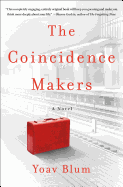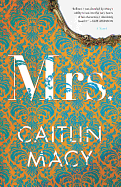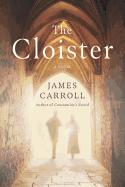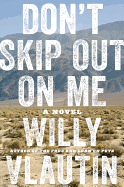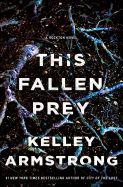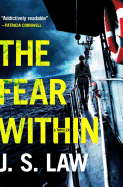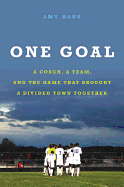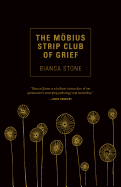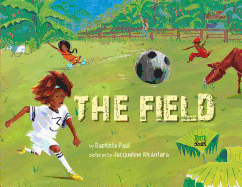 |
| photo: Rica Rosa |
Mario Giordano, the son of Italian immigrants, was born in Munich. He is the author of 1,000 Feelings for Which There Are No Names; he has also written thrillers, books for children and screenplays. Auntie Poldi and the Sicilian Lions is his first novel translated into English. He lives in Cologne.
Is there a real Auntie Poldi?
Yes. I had this Bavarian aunt and she moved to Sicily in order to drink herself to death, which she managed to do. She never expressed it openly, but it was quite obvious that she had that plan. She was a very funny and glamorous and dramatic woman. We all loved her. But she was very melancholy, too, so there was a blueprint, so to say.
Did she inspire you to write a mystery?
Well, it was a little bit like the nephew in Auntie Poldi attempting to write this big, big family saga. For many years I had the same idea. Three generations--Sicily, Germany, immigration, history, whatever. I never came to grips [with my problem with it] until I realized why. The reasons were quite simple: I didn't have a real story, no protagonist, no narrative perspective. So I thought, let's try with a genre I am familiar with, which is mystery and crime fiction. Then I had this idea to make it funny. Then I remembered my Aunt Poldi. At that moment, everything fell together. I immediately knew I would write a funny mystery with Auntie Poldi as a protagonist and myself as a clumsy, nerdy narrator. And that's it.
Do you have aunts like the characters Teresa, Caterina, Luisa? An Uncle Martino?
Of course. I had to ask them very seriously before I was writing the first book, because immediately they said, okay, no worries, you can write about us. I said no no no no no... take your time, sleep on it, and then give me an answer, because I don't want you to complain when the novel is done. So they said, okay, Mario, you can write about us, just change the names and we are fine. They really liked it, and since they grew up in Germany they can read the German editions.
"Sicilians find it a cinch to emigrate to Germany for decades: bag packed, bacio, addio--and off they go." Why Germany?
Well, it's not only Germany, of course. Sicilians have always emigrated to Austria, to Switzerland, to wherever in Europe, and even of course to the U.S. But Germany has always been a major destination because, as Machiavelli said, the neighbor of your neighbor is your friend. Italians do have a very romantic relationship with Germany, and vice versa. And it's not that far away. It was always possible to go back to Sicily on summer vacations. I am German, and this is the story of my family--they immigrated here in the early 20th century, and then went back in the 1960s.
Do you work with your translators?
In this case, no. I was in touch with the translator [John Brownjohn] later; sometimes he had questions, so we had a little e-mail exchange. I usually don't have much contact with a translator. It was a bit different with the Italian translation, because I commissioned the translation to make it a present to the non-German-speaking part of my family. Then an Italian publishing house bought this translation, and since my Italian translator was living in Berlin, we were in touch all the time. It's interesting to see how they struggle and which solutions they come up with.
One of the things I like about the English version is that the translator left in not just the usual familiar Italian words and phrases, but more, like forza, bella figura, che schifo.
I think that translators should have enough freedom to decide on their own how they work. It's never a good idea for me, as a writer, to recommend some stuff; if it's a good translator, they always have a feeling for what is best. I really like the idea that the translator left a few Italian words and phrases here and there. Even in the German original there are some Italian expressions which add atmosphere to the whole.
Will there be another Auntie Poldi book?
Yes. The second in the series is Auntie Poldi and the Vineyards of Etna [March 2019]. I just finished the third volume this summer, Auntie Poldi and the Handsome Antonio [March 2020]. Last week I decided to immediately finish a screenplay, and then I will start working on the fourth Poldi. I originally had the plan to write a very different novel in between, just for a change, but it was so much fun I really wanted to write another one. I always have said that I have enough material and ideas for six, but I think six would be enough. I never wanted to write a series for the rest of my life.
You have to know when to stop.
That's clear, because in a series at some point you have narrated all about the mystery of the character, and then everyone knows everything about the character. Then the series is done. There is no engine for continuation. As long as I can give the character a little secret and interesting parts to discover, then I'm fine.
Will you keep teasing us with what's under Poldi's infamous wig?
In the third volume, the nephew will get a little glimpse of what is probably under the wig. But he's not sure. And he wouldn't ever talk about it.
Good! I don't want to know.
Exactly. It's a ridiculous secret, but I really like it. --Marilyn Dahl
 In climes where spring leans cold, cozy up with Fresh and Smoked Haddock Chowder and bright Celery Root Slaw from the March menu in Annemarie Ahearn's Full Moon Suppers at Salt Water Farm: Recipes from Land and Sea (Roost Books, $35).
In climes where spring leans cold, cozy up with Fresh and Smoked Haddock Chowder and bright Celery Root Slaw from the March menu in Annemarie Ahearn's Full Moon Suppers at Salt Water Farm: Recipes from Land and Sea (Roost Books, $35).  For flavors that wake up the taste buds after a season of stews, sample Hawker Fare: Stories & Recipes from a Refugee Chef's Isan Thai and Lao Roots (Anthony Bourdain/Ecco, $39.99). James Syhabout and John Birdsall offer recipes that shine as farmers' market season begins. Try the fresh, crunchy Lao Imperial Rolls along with bright Tamarind Water, or unite savory and sweet with Fresh Rice and Tapioca Noodles with Shredded Chicken, Fried Garlic Oil and Donuts.
For flavors that wake up the taste buds after a season of stews, sample Hawker Fare: Stories & Recipes from a Refugee Chef's Isan Thai and Lao Roots (Anthony Bourdain/Ecco, $39.99). James Syhabout and John Birdsall offer recipes that shine as farmers' market season begins. Try the fresh, crunchy Lao Imperial Rolls along with bright Tamarind Water, or unite savory and sweet with Fresh Rice and Tapioca Noodles with Shredded Chicken, Fried Garlic Oil and Donuts. Revisit The Sioux Chef’s Indigenous Kitchen (Univeristy of Minnesota Press, $34.99) by Sean Sherman and Beth Dooley for a fresh approach to clean eating that highlights Indigenous wisdom and perspectives on plants, animals and elements. Sherman calls for spices especially welcome on a spring table--crushed juniper, sumac, smoked salt--adding new dimensions to familiar flavors. Try the Duck Egg Aioli with new potatoes, or expand your salad repertoire with the Spring Salad with Tamarack Honey Drizzle.
Revisit The Sioux Chef’s Indigenous Kitchen (Univeristy of Minnesota Press, $34.99) by Sean Sherman and Beth Dooley for a fresh approach to clean eating that highlights Indigenous wisdom and perspectives on plants, animals and elements. Sherman calls for spices especially welcome on a spring table--crushed juniper, sumac, smoked salt--adding new dimensions to familiar flavors. Try the Duck Egg Aioli with new potatoes, or expand your salad repertoire with the Spring Salad with Tamarack Honey Drizzle.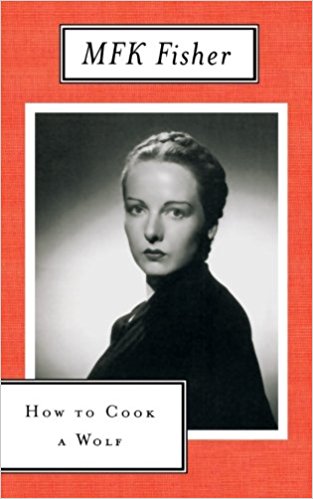 Finally, dust off a classic: M.F.K. Fisher's 1942 How to Cook a Wolf (North Point Press, $16). Fisher offers more than 70 recipes and top-shelf prose. When new greens are aplenty, make her Potage Else, a buttery sorrel soup enriched with cream and fresh herbs. Or try her simple polenta as a bed for any combination of spring produce. In Fisher's words, "No matter what conceits it may be decked with, its fundamental simplicity survives, to comfort our souls as well as our bellies, the way a good solid fugue does, or a warm morning in spring." --Katie Weed, freelance writer and reviewer
Finally, dust off a classic: M.F.K. Fisher's 1942 How to Cook a Wolf (North Point Press, $16). Fisher offers more than 70 recipes and top-shelf prose. When new greens are aplenty, make her Potage Else, a buttery sorrel soup enriched with cream and fresh herbs. Or try her simple polenta as a bed for any combination of spring produce. In Fisher's words, "No matter what conceits it may be decked with, its fundamental simplicity survives, to comfort our souls as well as our bellies, the way a good solid fugue does, or a warm morning in spring." --Katie Weed, freelance writer and reviewer


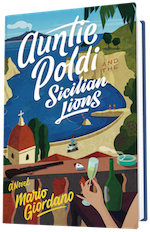



 Novelist and essayist Alfred Döblin (1878-1957) was a major figure in German literary modernism whose work spans multiple genres and historical periods. Despite his influence on later German writers like Günter Grass and W.G. Sebald, Döblin remains far less well known than contemporaries Bertolt Brecht and Thomas Mann. Döblin's tumultuous early life was defined by an absent father and poor mother. He became a doctor and volunteered for World War I to avoid conscription, all while working toward a literary career. His breakthrough came in 1916 with the publication of The Three Leaps of Wang Lun, a historical epic about revolution in 18th-century China. Despite that success, Döblin struggled in the chaos of the Wiemar Republic. He wrote Wallenstein, set during the Thirty Years War, in 1920 and Mountains Seas and Giants, a ground-breaking science-fiction epic, in 1924.
Novelist and essayist Alfred Döblin (1878-1957) was a major figure in German literary modernism whose work spans multiple genres and historical periods. Despite his influence on later German writers like Günter Grass and W.G. Sebald, Döblin remains far less well known than contemporaries Bertolt Brecht and Thomas Mann. Döblin's tumultuous early life was defined by an absent father and poor mother. He became a doctor and volunteered for World War I to avoid conscription, all while working toward a literary career. His breakthrough came in 1916 with the publication of The Three Leaps of Wang Lun, a historical epic about revolution in 18th-century China. Despite that success, Döblin struggled in the chaos of the Wiemar Republic. He wrote Wallenstein, set during the Thirty Years War, in 1920 and Mountains Seas and Giants, a ground-breaking science-fiction epic, in 1924.